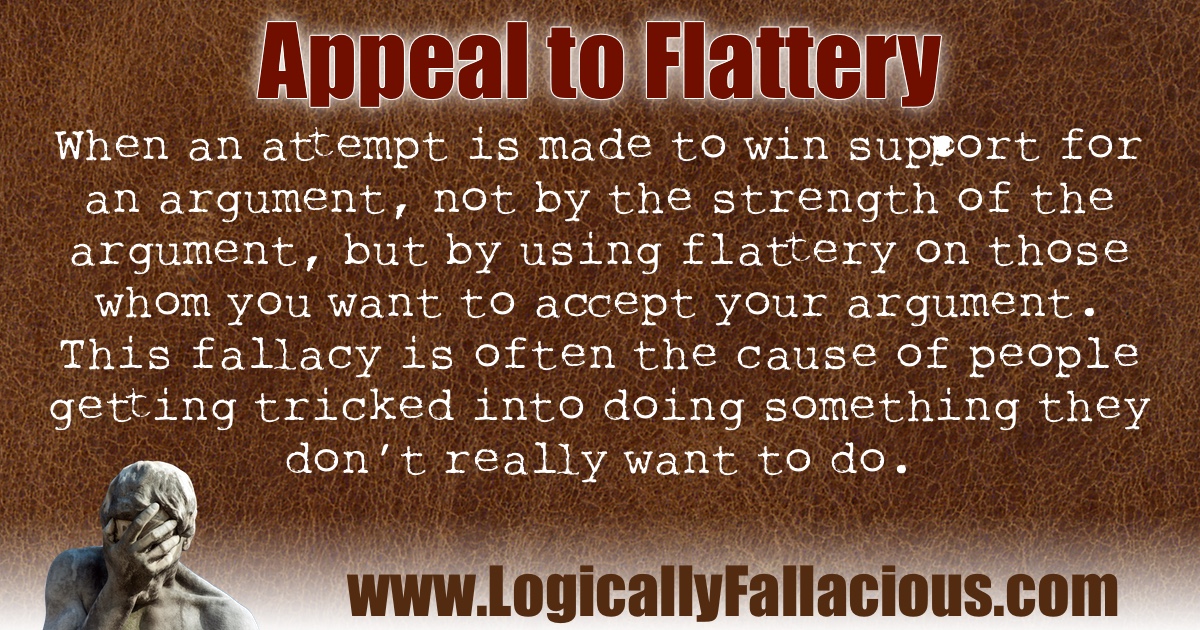(also known as: apple polishing, wheel greasing, brown nosing, appeal to pride / argumentum ad superbiam, appeal to vanity)
Description: When an attempt is made to win support for an argument, not by the strength of the argument, but by using flattery on those whom you want to accept your argument. This fallacy is often the cause of people getting tricked into doing something they don’t really want to do.
Logical Form:
X is true.
(flattery goes here)
Therefore, X is true.
Example #1:
You should certainly be the one who washes the dishes -- you are just so good at it!
Explanation: You may be great at washing dishes, but that fact in itself is not a sufficient reason for you being the one to wash the dishes. Is it necessary for someone as skilled at dish-washing as you to do the job, or is it a mindless job that anyone can do just fine?
Example #2:
Salesguy: You should definitely buy this car. You look so good in it -- you look at least ten years younger behind that wheel.
Tamera: I’ll take it!
Explanation: The comment about looking ten years younger just because of the car is obvious flattery and not a fact. This would not qualify as a valid reason for making such a purchase.
Exception: Sincere praise is not flattery and is universally appreciated[1]. However, even sincere praise in place of reason in an argument is a fallacy, unless the argument is directly related to the sincere praise.
You are a stunningly beautiful girl -- you should be a model.
Fun Fact: Flattery might get you somewhere, but it’s usually a place you don’t want to be.

References:
LaBossiere, M. C. (1995). Fallacies. Journal.
[1] There are exceptions: Women you don’t know very well don’t usually appreciate praise about their breasts or buttocks -- especially in a professional situation.